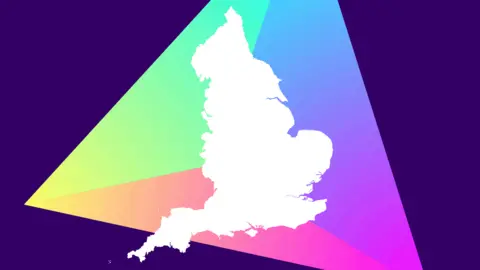How the BBC is reporting local election results
 BBC
BBCLocal council and mayoral elections are taking place across England on Thursday 1 May, with polls closing at 22:00 BST. A parliamentary by-election is also happening in the Cheshire seat of Runcorn and Helsby.
When are the local election results expected?
Votes in four of the mayoral contests - North Tyneside, Doncaster, West of England and Greater Lincolnshire - will be counted overnight. We are also expecting a result in the Runcorn and Helsby by-election in the early hours of Friday morning, and Northumberland County Council at around 07:30 BST.
The remaining 22 councils will count during the day on Friday 2 May, with most posting results mid-to-late afternoon.
Results for the mayors in Hull & East Yorkshire and Cambridgeshire & Peterborough are expected early on Friday afternoon.
Which elections does the BBC cover?
The BBC results service covers council and mayoral elections that are part of the regular election cycle as well as the Westminster by-election in Runcorn and Helsby.
Council results are available at a whole-council level. In line with most media outlets, the BBC does not provide ward-level results.
There may also be parish or town council elections, council by-elections or local referenda where you are. Results for these elections and ward level results can be found on your local council website.
The BBC uses data from the Press Association (PA) for its election results service, alongside some data it sources itself.
How is council control calculated?
If a party has more than half of the councillors on a council, it is deemed to be 'in control' of that council. If no party has more than half of the council seats, the council is described as having 'no party majority'.
If a party did not have enough seats to control a council before the election but goes on to win more than half the seats on 1 May, this is described a 'gain'.
This may be a gain from another party, or it may be that before the election no party had enough seats to control the council. In this case it is a gain from no party majority.
If the party already controlled the council before the election and they hold more than half the seats again after this election this is described as a 'hold'.
How is change in council control calculated?
Council control prior to the election is defined by the BBC, the Press Association and others as the party, if any, that had a majority in the days running up to the poll.
This may be different to the party that won at the last election.
For example, a party may have won control of a council at the last election but then have lost their majority in the meantime through defections or by-elections.
If that party were to win the council again this year, the BBC would describe this as a gain for that party rather than a hold.
How are notional results calculated?
When the boundaries of council wards change, it is important to have an idea of how many councillors each party would have had if the new boundaries been in place last time the seats were contested.
This way, the change in the number of councillors elected for each party can be calculated on a like-for-like basis.
This is not an exact science. When boundaries are redrawn and an area is moved from one council ward into another there is no official record of how that area voted.
This is where the experience and expertise of analysts comes in.
To calculate the notional results, analysts use maps of the old and new boundaries. They look at the area, and use local knowledge and professional judgement to help them work out how people are likely to have voted.
Using this information, they recalculate the results of the last election to show how many councillors each party would have had if the new boundaries had been in place.
It is this figure that is used by the BBC to calculate change in these areas.
You can see if an area has had boundary changes in the 'About this council' section at the bottom of each council results page.
How is the order of the banners and scorecards decided?
Banners appear at the top of the front page of the BBC News website, on relevant politics and live pages and stories related to the election.
Scorecards appear in election live pages, in stories about the election and on social media.
They are ordered by the number of council seats a party has won. This will change during the counting period as results come in.
When two parties are tied, the order is determined by the parties' performance in recent elections..
For most councils elections for these seats were last held in 2021, and so we compare new results to this baseline year to show change figures for the parties.
Mayoral elections
Regional mayors are being elected in a number of places across England including new mayors in Greater Lincolnshire and Hull & East Yorkshire.
The way mayors are elected has changed since these elections were last contested in 2021. They are now elected using a first-past-the-post system of voting. This means that the candidate with the most votes wins, without the need for another round of counting, in cases where one candidate did not reach more than a 50% of the vote.
Vacant seats
Vacant council seats are those which are left unfilled after this set of elections because a candidate in the electoral division or ward died after the close of nominations. In these cases nominations are re-opened and an election held within 35 working days.
